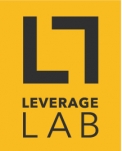

Leverage Lab

British Columbia, Canada
July 2014
Management consultant - for-profits
Service with Minor Environmental Footprint
Canada,
United States
What is the Leverage Lab? Leverage Lab is a boutique consulting firm specializing in B Corp certification and Sustainability Strategy. With 18 years of expertise working with businesses on sustainability and strategy, we understand what it takes to be resilient in changing times. We help companies measure what matters, win employee and customer loyalty, navigate trends, and design a company built to last. We do this by helping you navigate the B Corp certification process and embed sustainability into your DNA. Over years of working with a variety of industries, we have developed a set of unique tools to help clients track their progress and improve impact year to year. We strongly believe in progress over perfection, so our work is designed to meet clients where they are at in their sustainability journey. Who are we? Leverage Lab founder Sara Blenkhorn holds a M.Sc in Strategic Leadership Towards Sustainability and 10 years of experience facilitating strategic planning sessions across industries. This deep knowledge of operationalizing sustainability makes her uniquely suited to lead this work. Why are we doing this work? Now is the time. Gone are the days of Greenwashing! The world has woken up in the last 2 years, and it no longer works to say you are green without data.
Overall B Impact Score
Governance 19.8
Governance evaluates a company's overall mission, engagement around its social/environmental impact, ethics, and transparency. This section also evaluates the ability of a company to protect their mission and formally consider stakeholders in decision making through their corporate structure (e.g. benefit corporation) or corporate governing documents.
What is this? A company with an Impact Business Model is intentionally designed to create a specific positive outcome for one of its stakeholders - such as workers, community, environment, or customers.
Workers 26.4
Workers evaluates a company’s contributions to its employees’ financial security, health & safety, wellness, career development, and engagement & satisfaction. In addition, this section recognizes business models designed to benefit workers, such as companies that are at least 40% owned by non-executive employees and those that have workforce development programs to support individuals with barriers to employment.
Community 21.7
Community evaluates a company’s engagement with and impact on the communities in which it operates, hires from, and sources from. Topics include diversity, equity & inclusion, economic impact, civic engagement, charitable giving, and supply chain management. In addition, this section recognizes business models that are designed to address specific community-oriented problems, such as poverty alleviation through fair trade sourcing or distribution via microenterprises, producer cooperative models, locally focused economic development, and formal charitable giving commitments.
Environment 13.7
Environment evaluates a company’s overall environmental management practices as well as its impact on the air, climate, water, land, and biodiversity. This includes the direct impact of a company’s operations and, when applicable its supply chain and distribution channels. This section also recognizes companies with environmentally innovative production processes and those that sell products or services that have a positive environmental impact. Some examples might include products and services that create renewable energy, reduce consumption or waste, conserve land or wildlife, provide less toxic alternatives to the market, or educate people about environmental problems.
Customers 23.8
Customers evaluates a company’s stewardship of its customers through the quality of its products and services, ethical marketing, data privacy and security, and feedback channels. In addition, this section recognizes products or services that are designed to address a particular social problem for or through its customers, such as health or educational products, arts & media products, serving underserved customers/clients, and services that improve the social impact of other businesses or organizations.
What is this? A company with an Impact Business Model is intentionally designed to create a specific positive outcome for one of its stakeholders - such as workers, community, environment, or customers.